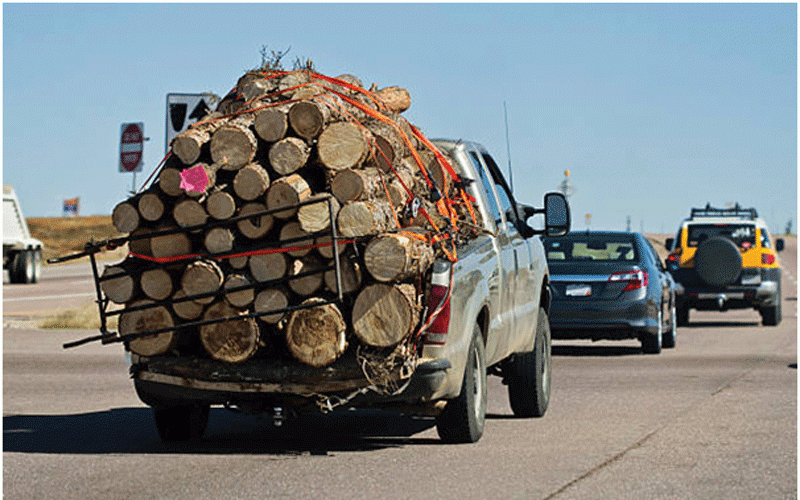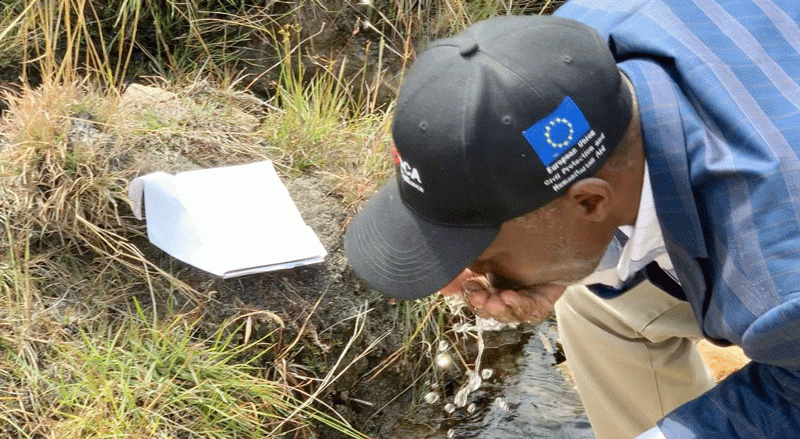
The majority of motorists are guilty of overloading their cars at some point while the public transport service providers do it on a daily basis.
I really wonder if the public transport service providers do understand the risks associated with overloading the vehicles and the danger it exposes other road users, the passengers and the goods they will be carrying?
Many cars are capable of carrying lots of passengers and luggage relative to their size. However, every car has a limit on how much weight it Is capable of carrying, and if you are not too careful you risk overloading your car.
Overloading a vehicle isn’t a trivial matter, as a car that’s carrying more weight than it was designed to carry can be a serious safety hazard to yourself and other road users.
The recent loss of 17 people who died after a head-on collision between a haulage truck and a commuter omnibus outside of Chitungwiza makes this conversation important. I will share some of the risks of overloading your car as well as tips on how you can avoid these dangers.
What happens if you overload a car?
As anyone who’s ever driven a fully-loaded car when heading off on a family holiday can attest to, a car gets very heavy when it’s crammed with passengers and their luggage.
Overloading a car will have a great impact on the way it drives. The drivers who are doing the mushikashika transport service are familiar with what l am talking about.
- Zim needs committed leaders to escape political, economic quicksands
- Over 115 to exhibit at Mine Entra
- Afcon finals moved to Jan 2024
- GRDC in corruption allegations
Keep Reading
For instance, the extra weight will make it much harder for you to control an overloaded car – especially if the weight isn’t distributed evenly in the car. It won’t respond to steering controls as quickly, and it will take a lot longer to build up and maintain speed.
All that extra weight will also increase your car’s stopping distance, so an overloaded car will be difficult to slow down when avoiding an unexpected obstacle.
Depending on the size and quantity of the items you’re loading into the car, visibility may also be compromised in an overloaded vehicle.
If you fill up the car’s boot or cabin to the roof with goods, for instance, you’ll obscure the view out of the rear window.
Perhaps the most serious consequence of overloading a car is the extra strain they put on some of the key components on your car.
Your car’s suspension will have been engineered to accept a specific weight, so any payloads that exceed those limits will mean your car’s suspension will be put under far more strain than it was designed to tolerate and this results in some parts wearing out faster than normal and could potentially even fail when you’re driving.
The same principle applies to your car’s tyres. All of that extra weight pushing the tyres into the tarmac will not only wear them out faster, but also increases the chances of them failing due to all that extra mass. So the extra income you think you are gaining by overloading is lost through the high cost of replacing the same parts – so there is no real benefit in the end.
Is there a penalty for overloading a car?
On top of the safety risks, there is also the potential of other ramifications for being caught with an overloaded car.
If the police or the Vehicle Inspection Department (VID) catch you driving an overloaded car, you can be charged with a fine.
If your overloaded car poses a threat to the safety of yourself and other road users, then the punishments can become more severe.
This is what causes the trucks to be subjected to the weigh bridges so that the VID and Police can check if their loads are within the maximum weight it is expected to carry.
How much weight can my car carry?
All cars have a gross vehicle weight rating, or GVWR, which is the maximum weight the car is able to carry as specified by the car manufacturer.
This weight will consist of the car’s weight, plus the weight of any fluids such as engine oil and fuel, the weight of the passengers and any other items that are stored in the cabin.
You can find out your car’s gross vehicle weight by looking at your car’s vehicle registration book or the owner’s manual to make sure. If you’re towing a trailer or have a roof box fitted to your car, do also bear in mind this will also have an effect on your car’s gross vehicle weight. With roof boxes, there are also maximum weights to consider, which include both the weight of the roof box itself and the payload that’s being carried in it.
How to load a car safely
One thing you should consider when you’re loading lots of items into your car is to keep the heaviest items as low down in the car as possible.
Putting all that weight low down in the car will help lower its centre of gravity.
This will mitigate some of the effects that extra weight will have on your car’s handling.
This tip can also apply if you aren’t carrying many items in your car at any one time. For example, if you’re carrying loose items or bags of shopping in your car, they’ll be more secure somewhere like your car’s rear seat footwells than the boot.
Likewise, don’t leave any small or loose items on your car’s parcel shelf, as you run the risk of these being pushed forward and potentially striking yourself or a passenger in the event of a car accident. When loading a car with items, you should also prepare your car for the extra weight it will be carrying.
For example, your car’s owner’s manual will usually list the pressure your car’s tyres should be inflated to when the car is fully loaded.
If possible, try to weigh whatever it is you want to carry in your car, especially if you intend to carry lots of heavy items.
This will give you a better idea of just how much weight you’ll be putting in your car, and may help you determine whether your car is overloaded or not.
Overloading is also caused by using the wrong vehicle for specific tasks. While owning cars is not cheap but you must use the right vehicle for the right purpose which confirms the need to have several cars and not just one.
*Stanley Makombe has 25 years of experience in the motor industry, currently handling vehicle imports from Japan, Thailand the UK, and South Africa into African countries. He is writing in his capacity and can be contacted on +254 743 900 590, on X @Stan_Carsales, email: [email protected], www.stanleymakombe.com











